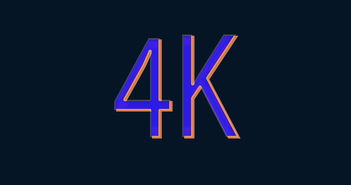Can I access DeFi services legally across different countries?
Can I Access DeFi Services Legally Across Different Countries?
Imagine waking up one morning, grabbing your coffee, and pondering whether you can tap into DeFi platforms to manage your assets without worrying about the borders—no more worrying about whether your country’s laws are holding you back. It’s a compelling question that many crypto enthusiasts, traders, and everyday investors are asking in today’s borderless digital world. After all, DeFi promises global financial inclusion, but how does legality play into that across different jurisdictions?

The DeFi Landscape: A Global Financial Revolution on the Horizon
Decentralized Finance, or DeFi, has radically reshaped how we think about money, offering peer-to-peer lending, staking, yield farming, and even complex derivatives—all powered by blockchain technology. Unlike traditional banks or brokerages, DeFi platforms operate on smart contracts, with no central authority overseeing transactions. That autonomy is a game-changer, especially for people in regions with limited banking options.
But here’s the catch: the legal terrain isn’t a single flat plane. While DeFi’s potential to democratize finance is clear, different countries have varied regulations, ranging from embracing the innovation to outright banning or heavily restricting cryptocurrencies and digital assets.
Navigating Legal Boundaries in Different Countries
Ever heard of a country like El Salvador, which openly adopted Bitcoin as legal tender? Or, on the flip side, nations like China citing concerns over financial stability and control, banning crypto altogether? The spectrum of regulation is wide, and it impacts whether you can legally access DeFi services.
Some regions adopt a cautious but enabling stance—setting up regulatory frameworks that aim to prevent money laundering or fraud, while still encouraging innovation. Others, meanwhile, take a strict approach, effectively shutting down access by blocking certain platforms or IP ranges. This inconsistency creates a gray area that users need to navigate carefully.
If youre in a country with restrictive laws, using VPNs or decentralized VPN services might seem tempting, but that can carry legal risks. Always check local laws, because what is technically possible might still be illegal.
Why the Legal Uncertainty Matters for Users
Accessing DeFi services isn’t just a matter of clicking a button—regulatory oversight impacts your security, privacy, and rights. For instance, if a platform is deemed illegal in your jurisdiction, you might face penalties or loss of access. Plus, the lack of clear regulation can make it tricky to determine the legitimacy of certain platforms, leaving users vulnerable to scams or losing assets.
On the flip side, a well-regulated environment can foster consumer protections, transparent KYC processes, and safer trading environments. Imagine a future where governments provide clear pathways for DeFi adoption—think of how insurance and legal recourse could make DeFi safer and more accessible for everyone.
DeFi’s Future: A Wave of Innovation and Challenges
The sector is evolving fast. Were seeing exciting advances like smart contract automation and AI-driven trading bots, which analyze market data to make lightning-fast decisions—potentially reducing human error. Trader-friendly platforms integrate real-time data and customizable analytics, turning complex trades like forex, stocks, options, commodities, and cryptocurrencies into more accessible activities.
However, this rapid innovation isn’t without hurdles. Regulatory crackdowns, variable legal stances, and concerns over security are still obstacles. Yet, the new tide of blockchain-based tools and growing acceptance worldwide signals a promising future—one where DeFi becomes more integrated into everyday life, transcending borders.
Embracing the Decentralized Future responsibly
Standing at this crossroads—between innovation and regulation—what can traders and investors do? Building trust with platforms that prioritize security, transparent operations, and compliance is step one. Diversifying assets, using leverage carefully, and employing advanced tools such as leverage management strategies can help navigate market swings safely.
Looking ahead, the integration of AI with blockchain is creating smarter, faster, and more efficient trading systems—making complex transactions more manageable. The future might hold fully automated smart contracts executing trades on your behalf, with AI optimizing strategies based on market trends, all while maintaining peer-to-peer privacy.
Final thoughts: “Worldwide, borderless finance is within reach—smart, secure, and compliant”
The dream of accessing DeFi services legally from anywhere in the world is becoming a reality—though it’s not without its nuances. Navigating different regulatory environments requires a keen eye and careful planning, but the potential benefits are undeniable. As technology advances, expect to see more seamless, compliant, and user-friendly DeFi options that empower you to take control of your financial future, wherever you are.
Remember, the key isn’t just access, but responsible, informed participation. The way forward is a blend of innovation, regulation, and user-awareness—cornerstones of the new decentralized financial era.

